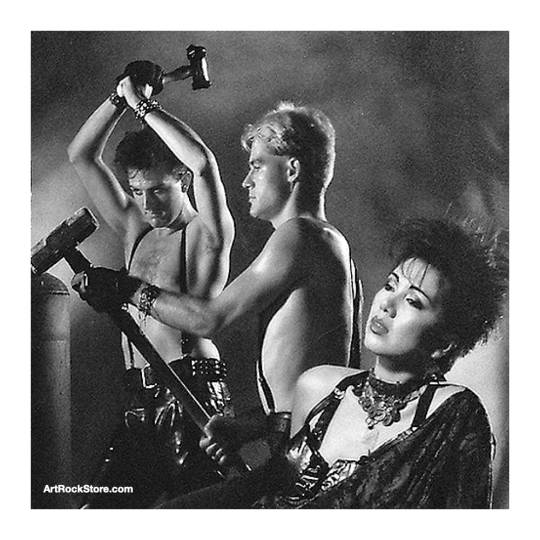#spk
Note
Since you're now working on an alternate ending (within an alternate universe lol), I was wondering if you have some kind of mini story or something that explains how the kids survived the original story.
Not on how they survive exactly but I have some extensive notes on what happens for the surviving 2.1 Mello and Matt in the few days between the Takada kidnapping and the confrontation between Light and Near if you wanna read those? -> Near's Deal
#death note#fanfic#fic#ask#dn au 2.1#mellodramattic#m2#mello#near#matt#halle#gevanni#spk#rester#nate river#mail jeevas#mihael keehl
16 notes
·
View notes
Text

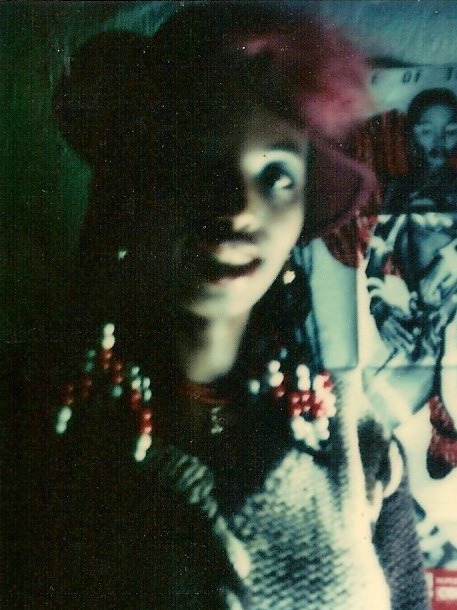

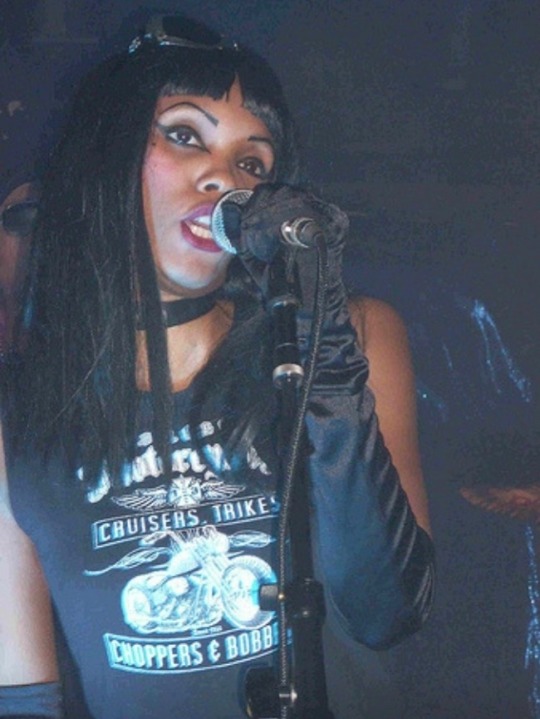


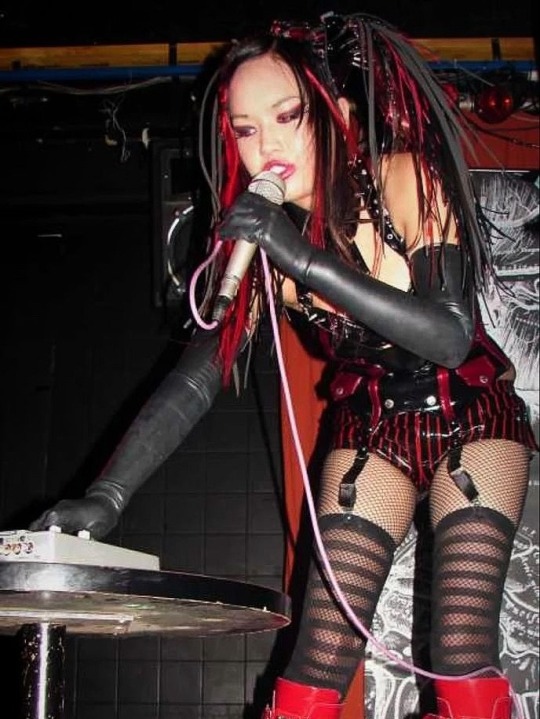


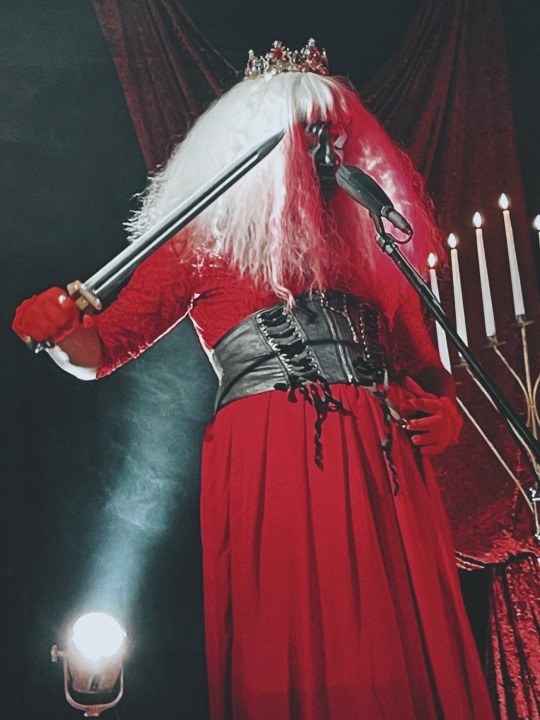
Women of Color in Industrial Music:
Sinan Leong (SPK)
Nyra Bakiga
Cyrnai
Jacky Blacque (My Life With the Thrill Kill Kult)
Meg Lee Chin (Pigface)
Android Lust
Amelia Arsenic (Angelspit)
Mariqueen Maandig (How to Destroy Angels)
Moor Mother
Backxwash
#industrial#industrial music#experimental music#woc in industrial music#sinan leong#spk#nyra bakiga#cyrnai#my life with the thrill kill kult#jacky blacque#meg lee chin#pigface#android lust#amelia arsenic#angelspit#mariqueen maandig#how to destroy angels#moor mother#backxwash
2K notes
·
View notes
Text
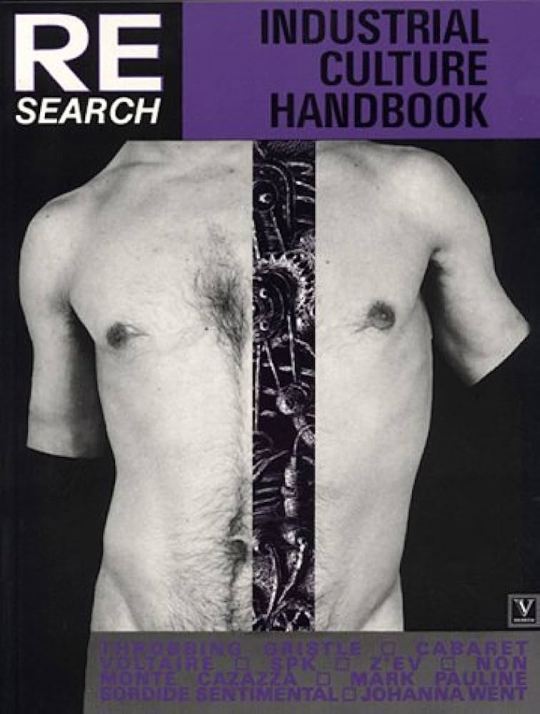
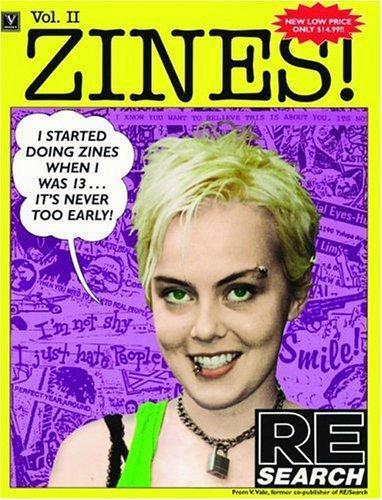

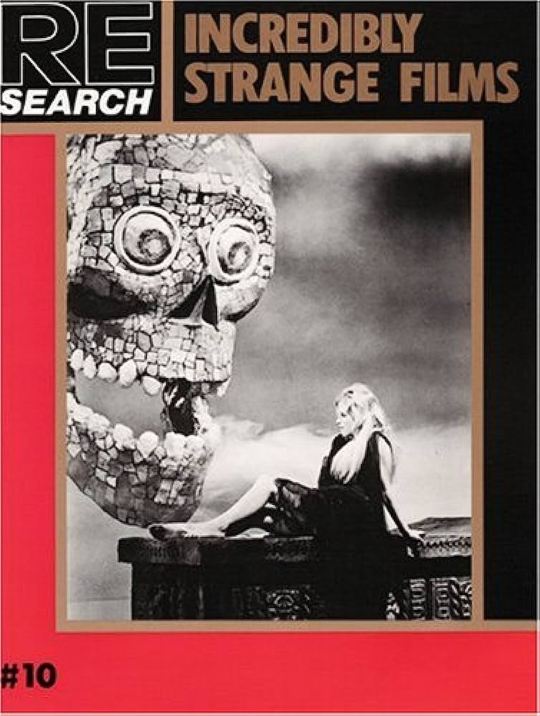
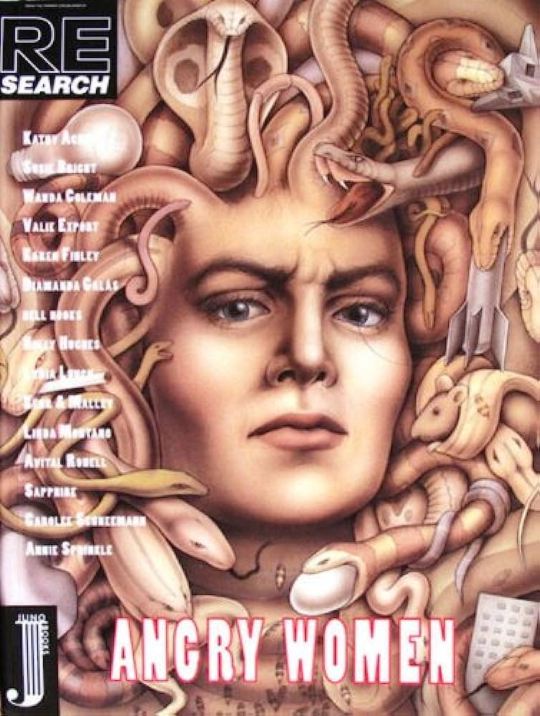
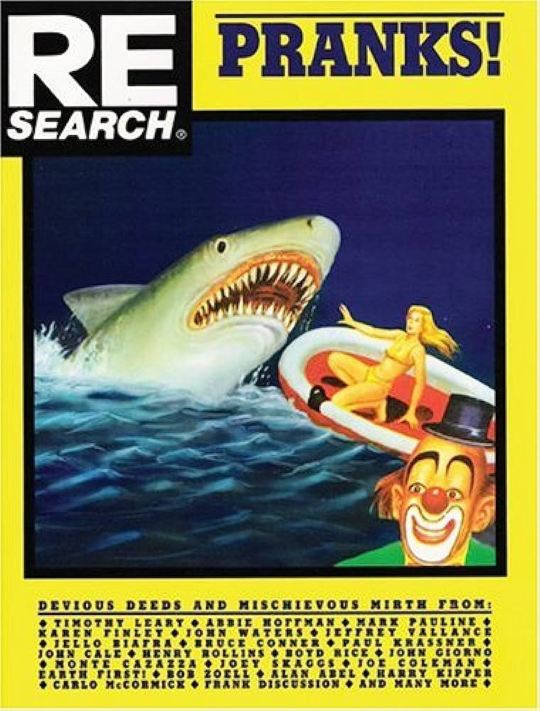
Re/Search
Here is a (nearly) complete collection of Re/Search books mostly on PDF.
Enjoy the Ballard. Learn about early Industrial culture. Be baffled by their attempt to cash in on the Swing trend of the early 2,000's. Be annoyed that they were partially responsible for extending Boyd Rice's career by decades. Marvel at once was and might possibly still be transgressive.
You can get it all from my Google Drive HERE
#research#re/search#v. vale#book#books#zine#zines#punk#industrial#transgressive#noise#experimental#spk
420 notes
·
View notes
Text
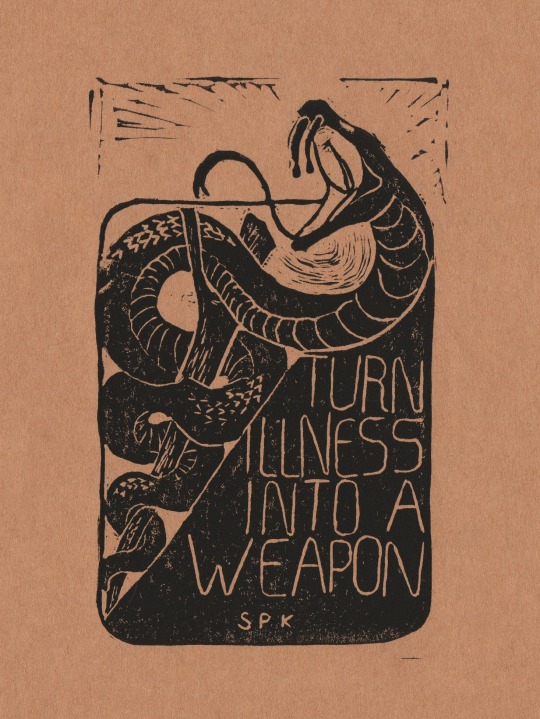
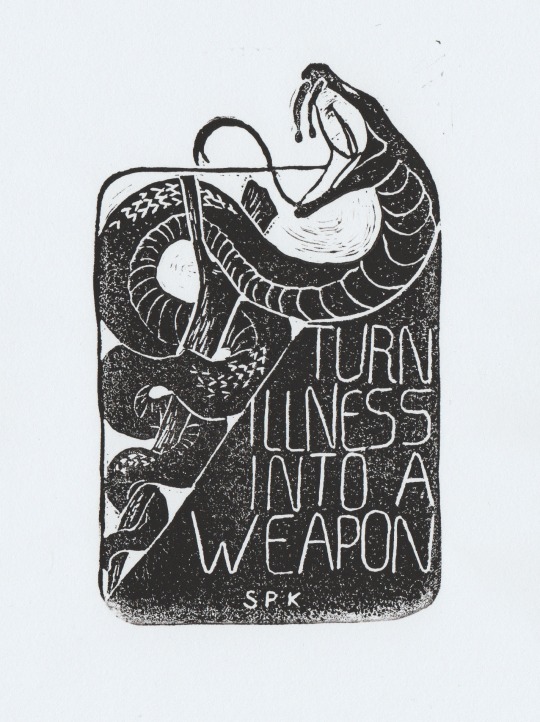
⚕️ Turn Illness into a Weapon ⚕️
"Among the surviving records of SPK’s (Sozialistisches Patientenkollektiv or Socialist Patients' Collective) actions and ideologies is a manifesto written by its members called Aus Der Krankheit Eine Waffe Machen (often translated as To Make an Army out of Illness, or Turn Illness into a Weapon). This 1972 text is part user manual, part oral history, part sardonic critique of Cold War capitalism. Unlike other self-organized patient groups and their counterparts in the anti-psychiatry movement, SPK uniquely combined Marxist political theory, social science analysis, and what they termed 'therapeutic praxis' to create an improvised, in-patient community with the express collectivist goal of researching the connections between capitalism, madness, eugenics, and the individuation of illness under political economies of work and care."¹
— from Health Communism, written by Beatrice Adler-Bolton and Artie Vierkant.
[ID: My design of a linocut print on brown paper. A snake is wrapped around a stick, with text below which reads, "Turn Illness into a Weapon". The snake is hissing and baring its fangs. Its tongue is curling out of its mouth. The second image is the same design but on white paper. End ID]
¹ Beatrice Adler-Bolton and Artie Vierkant, Health Communism (Brooklyn: Verso, 2022), 128-129.
#turn illness into a weapon#to make an army out of illness#Aus Der Krankheit Eine Waffe Machen#spk#Sozialistisches Patientenkollektiv#socialist patients' collective#illness#mental health#madness#disability justice#healthcare#political economy of health#health communism#beatrice adler-bolton#artie vierkant#death panel#snake#rod of asclepius#art#print making#ink#linocut#linoprint
154 notes
·
View notes
Text
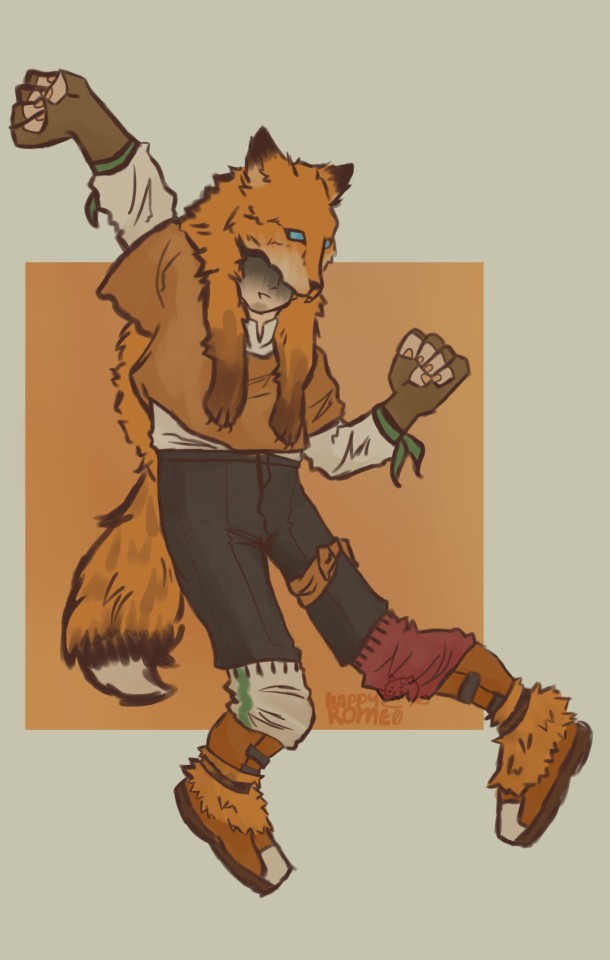
Everybody in mcyt is a hybrid. Just not Spk. He's just a furry.
#happyromeo art#spk#seapeekay#seapeekay fanart#spk fanart#mcyt fanart#mcyt fandom#mcytblr#mcyt#callum spk#new life smp fanart#new life smp#nlsmp#nlsmpblr#cpk#callum cpk
282 notes
·
View notes
Text
just learned that my uquiz "are you the soldier, the poet, or the king?" recently blew up on tiktok, leading to an influx of people taking it (864k and counting) and thus checking out my tumblr!! so hi if you're new, don't really expect anything in the same style from me (though i have other quizzes!), i made the quiz in 2020 and it was more a creative exercise for my friends than anything else :) i'm in a bit of a creative block right now and am trying to get back to regularly writing poetry. im happy to answer questions about it though!!
486 notes
·
View notes
Text
So I was watching Ranboos old OSMP streams about a week ago, and while I’m absolutely definitely not looking too deeply into anything, I did end up finding something that made me pause and stare at the screen in silence:
(Clip is from “Ranboo finally becomes an Enderman - Origins SMP” vod and starts at 1:01:50)
[Start transcript]
Charlie: What kind of uh- what kind of house do you think I- I should have guys?
Ranboo: Um-
Wilbur (cutting him off): I think you- Open plan house. (his mic cuts mid sentence)
Charlie: Open plan?
Wilbur: Open plan!
Ranboo (talking over Wilbur): Ok, ok…
Wilbur: I think you need a house that facilitates your play style! As a slime, you need a house with many bounce zones, many little one-
Charlie (cutting him off): I agree-
Wilbur (continuing): Many little one block tall crawly zones.
Ranboo: Or-
Charlie (cutting him off): I completely agree-
Ranboo (continuing): Now hear me out… CABIN.
[End transcript]
I am VERY sure that this is just coincidence (mostly because this was uploaded over two years ago in February of 2021), however, at the mention of a CABIN in the context of making CHARLIE a house I couldn’t NOT have a visceral reaction to it.
351 notes
·
View notes
Text
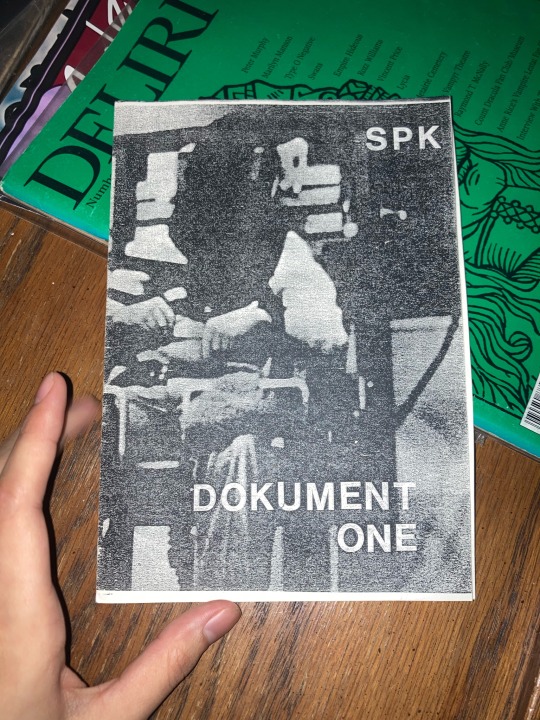
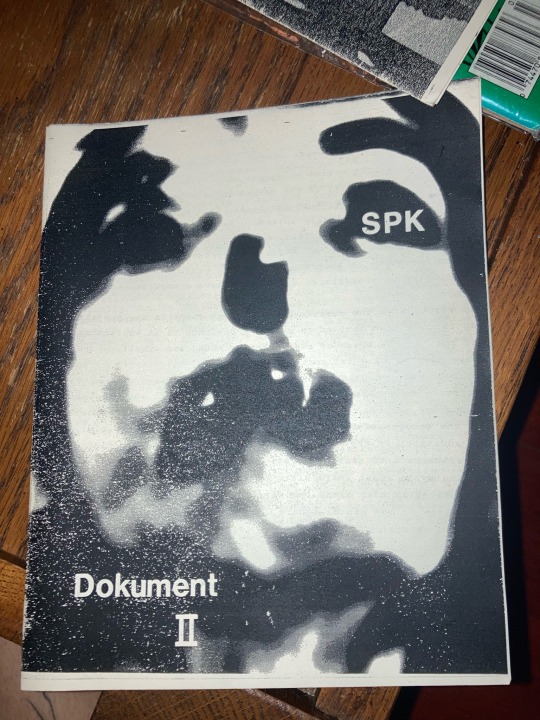

sick spk zines my friend peter picked up
99 notes
·
View notes
Text
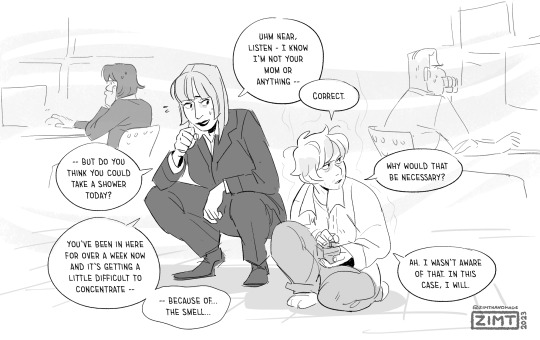
Even if he‘s as physically inactive as one can be, Near most likely has this adolecent sweaty stench on him. He‘s a teen in the SPK arc after all. Teens stink.
-----
My other socials
Commission Info
Let's have some Ko-Fi! 🍵
#death note#fanart#near#nate river#halle lidner#stephen gevanni#anthony rester#spk#comic#sketch#wammys boys#wammys house#wammy boys#wammy kids#wammy's house#headcanon#au#dn au 2.0#my art
278 notes
·
View notes
Text
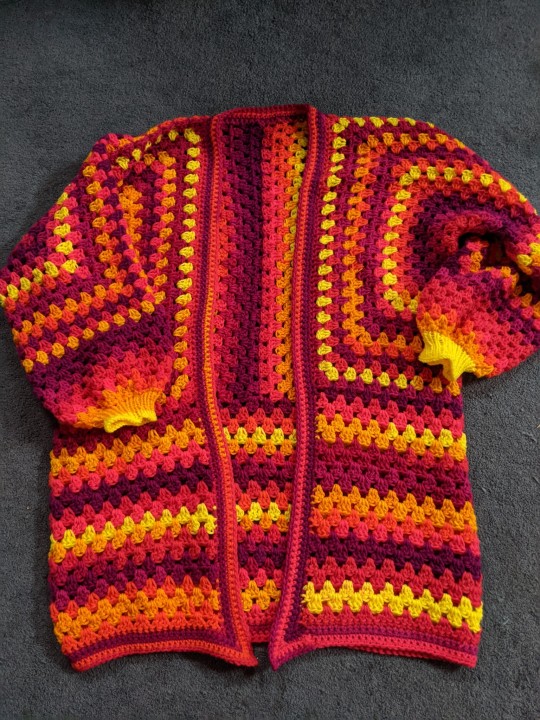
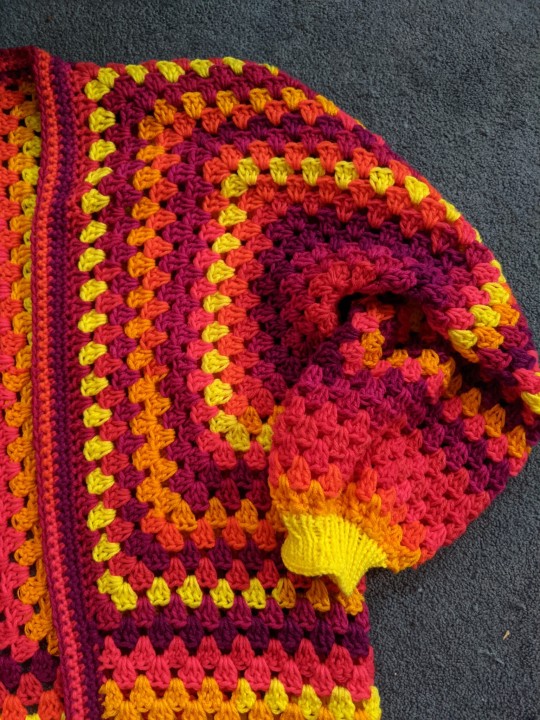

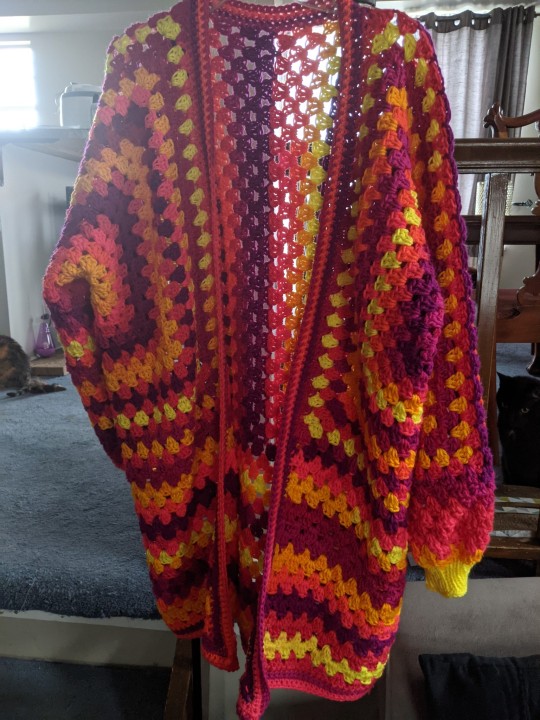


(Post written approximately a year ago, but all info is still accurate!!!)
Granny Hexagon Sweater #3
When I say I’ve been literally obsessed with these granny hexagon sweaters lately, I’m absolutely not kidding. I made this one for my friend Rachel, who absolutely loved it, thankfully. She gave me a list of colors for yarn that she was interested in for a sweater, and none of them are actually in this yarn, but I found it and went “Rachel will love this”, so I sent her a photo of it along with all of the other yarns I had found that actually matched the colors she gave me, and this is the one she chose! I’m so glad she did, too, because it’s an absolutely perfect color selection for her, and suits both her and her personality perfectly. However, these photos make me incredibly sad, as they absolutely do not capture the true colors of the finished item, which are far more vibrant.
For this sweater, I continued using the alterations I made to the PassioKnits tutorial linked in my first sweater post, namely altering the structure of the granny stripe sections ever so slightly, and knitting the cuffs of the sweater. I also (accidentally) chained two in the front corners on the sweater border, making them longer and pointier than the other two sweaters I’ve made so far, but I actually like the look, and there weren’t so many rows on the border that they warped the corners too badly, so I decided to leave them as they were instead of ripping and redoing the border. I used approximately seven skeins of Red Heart Super Saver Stripes in Fruity Stripe, a US size K crochet hook for the body, US size I crochet hook for the border, and US size 8 knitting needles for the cuffs of the sleeves.
(P.S. peek under the cut for Loki’s opinion on this sweater)
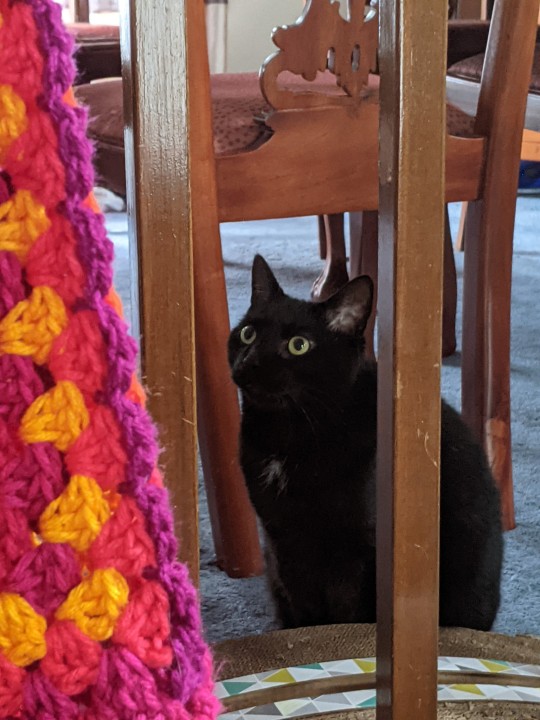
#granny hexagon#granny hexagon sweater#granny hexagon cardigan#sweater#cardigan#crochet#original post#handmade#small potato knitwear#spk
104 notes
·
View notes
Text
The End of the World or the End of Capitalism?: Colletion of Notes.
>"Capitalist realism as I understand it cannot be confined to art or to the quasi-propagandistic way in which advertising functions. It is more like a pervasive atmosphere, conditioning not only the production of culture but also the regulation of work and education, and acting as a kind of invisible barrier constraining thought and action".
-Mark Fisher, Capitalist Realism: Is There No Alternative?
>[Capital] has drowned the most heavenly ecstasies of religious fervor, of chivalrous enthusiasm, of philistine sentimentalism, in the icy water of egotistical calculation. It has resolved personal worth into exchange value, and in place of the numberless indefeasible chartered freedoms, has set up that single, unconscionable freedom Free Trade. In one word, for exploitation, veiled by religious and political illusions, it has substituted naked, shameless, direct, brutal exploitation
-Karl Marx and Friedrich Engels, Manifest der Kommunistischen Partei.
>"In his Prison Notebooks, Gramsci said that in periods of crisis the old is dying and the new is not yet born. While Gramsci drew attention to the morbid symptoms of such a situation (in 1930) our crisis is different, and I want to draw attention to more hopeful symptoms (waiting to be born) of our present crisis of capitalist hegemony.
The viability of initiatives trying to avoid competition with the market and escape from the hierarchic state rests on many untested assumptions. The first assumption is that those who do essential day-to-day tasks would continue to do their jobs in a PCC in preference to large corporations and their local affiliates: a multitude of people who now work in private or public sectors, directly or indirectly, establishing PCCs in their local communities producing food, organizing transport, setting up places of learning and transmission of skills, providing healthcare, running power systems, and so on. PCCs already do this all over the world on a small scale but such initiatives struggle within capitalist markets. Community-Supported Agriculture schemes in various parts of the world represent a first step on a long and difficult road to self-sufficiency in this sphere".
- Leslie Sklair, The End of the World or the End of Capitalism?
>"In 1869, New York neurologist George Beard used the term "neurasthenia" to describe a very broad condition caused by the exhaustion of the nervous system, which was thought to be particularly found in "civilized, intellectual communities."
In 1998, Swedish psychiatrists Marie Åsberg and Åke Nygren investigated a surge of depression health insurance claims in Sweden. They found that the symptoms of many cases did not match the typical presentation of depression. Complaints like fatigue and decreased cognitive ability dominated, and many believed their working conditions to be the cause"
>"The whole life of those societies in which modern conditions of production prevail presents itself as an immense accumulation of spectacles. All that once was directly lived has become mere representation".
-Guy Debord, The Society of the Spectacle.
>"Architecture is the simplest means of articulating time and space, of modulating reality, of engendering dreams. It is a matter not only of plastic articulation and modulation expressing an ephemeral beauty, but of a modulation producing influences in accordance with the eternal spectrum of human desires and the progress in realizing them.
The architecture of tomorrow will be a means of modifying present conceptions of time and space. It will be a means of knowledge and a means of action."
-Ivan Chtcheglov, Formulary for a New Urbanism
>"To you, this gathering is just one more boring event. The Situationist International, however, considers that while this assemblage of so many art critics as an attraction of the Brussels Fair is laughable, it is also significant.
Inasmuch as modern cultural thought has proved itself completely stagnant for over twenty-five years, and inasmuch as a whole era that has understood nothing and changed nothing is now becoming aware of its failure, its spokesmen are striving to transform their activities into institutions. They thus solicit official recognition from the completely outmoded but still materially dominant society, for which most of them have been loyal watchdogs.
The main shortcoming of modern art criticism is that it has never looked at the culture as a whole nor at the conditions of an experimental movement that is perpetually superseding it. At this point in time the increased domination of nature permits and necessitates the use of superior powers in the construction of life."
-The Situationist International, Action in Belgium Against the International Assembly of Art Critics
>"Karoshi (Japanese: 過労死, Hepburn: Karōshi), which can be translated into "overwork death", is a Japanese term relating to occupation-related sudden death.
The most common medical causes of karoshi deaths are heart attacks and strokes due to stress and malnourishment or fasting. Mental stress from the workplace can also cause workers to commit suicide in a phenomenon known as karōjisatsu (過労自殺)"
>"The limits of capitalism are not fixed by fiat, but defined (and redefined) pragmatically and improvisationally. This makes capitalism very much like the Thing in John Carpenter's film of the same name: a monstrous, infinitely plastic entity, capable of metabolizing and absorbing anything with which it comes into contact. Capital, Deleuze and Guattari says, is a ‘motley painting of everything that ever was'; a strange hybrid of the ultra-modern and the archaic. In the years since Deleuze and Guattari wrote the two volumes of their Capitalism And Schizophrenia, it has seemed as if the deterritorializing impulses of capitalism have been confined to finance, leaving culture presided over by the forces of reterritorialization.
This malaise, the feeling that there is nothing new, is itself nothing new of course. We find ourselves at the notorious ‘end of history' trumpeted by Francis Fukuyama after the fall of the Berlin Wall. Fukuyama's thesis that history has climaxed with liberal capitalism may have been widely derided, but it is accepted, even assumed, at the level of the cultural unconscious. It should be remembered, though, that even when Fukuyama advanced it, the idea that history had reached a ‘terminal beach' was not merely triumphalist. Fukuyama warned that his radiant city would be haunted, but he thought its specters would be Nietzschean rather than Marxian. Some of Nietzsche's most prescient pages are those in which he describes the ‘oversaturation of an age with history'. ‘It leads an age into a dangerous mood of irony in regard to itself, he wrote in Untimely Meditations, ‘and subsequently into the even more dangerous mood of cynicism', in which ‘cosmopolitan fingering', a detached spectatorialism, replaces engagement and involvement. This is the condition of Nietzsche's Last Man, who has seen everything, but is decadently enfeebled precisely by this excess of (self) awareness."
-Mark Fisher, Capitalist Realism: Is There No Alternative?
>The Socialist Patients' Collective (German: Sozialistisches Patientenkollektiv, and known as the SPK) is a patients' collective founded in Heidelberg, West Germany, in February 1970, by Wolfgang Huber (born 1935). The kernel of the SPK's ideological program is summated in the slogan, "Turn illness into a weapon", which is representative of an ethos that is continually and actively practiced under the new title, Patients' Front/Socialist Patients' Collective, PF/SPK(H). The first collective, SPK, declared its self-dissolution in July 1971 as a strategic withdrawal but in 1973 Huber proclaimed the continuity of SPK as Patients' Front.
The SPK assumes that illness exists as an undeniable fact and believe that it is caused by the capitalist system. The SPK promotes illness as the protest against capitalism and considers illness as the foundation on which to create the human species. The SPK is opposed to doctors, considering them to be the ruling class of capitalism and responsible for poisoning the human species. The most widely recognized text of the PF/SPK(H) is the communique, SPK – Turn illness into a weapon, which has prefaces by both the founder of the SPK, Wolfgang Huber, and Jean-Paul Sartre.
Rejecting the roles and ideology associated with the notion of the revolutionary as scientific explainer, they stated in Turn Illness into a Weapon that whoever claims they want to "observe the bare facts dispassionately" is either an "idiot" or a "dangerous criminal."
#anti capitalism#leftblr#SPK#Mark Fisher#Leslie Sklair#the international situationist#guy debord#end of the world#postmodernism#postmodern#marxism#socialism#capitalism#Colletion of notes
51 notes
·
View notes
Text
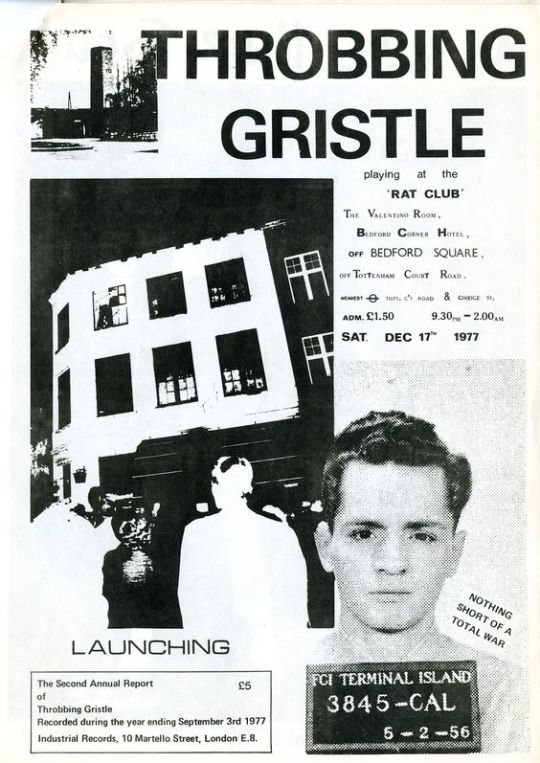
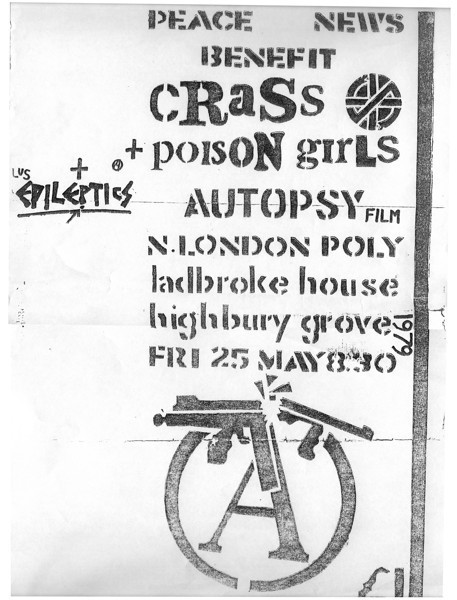
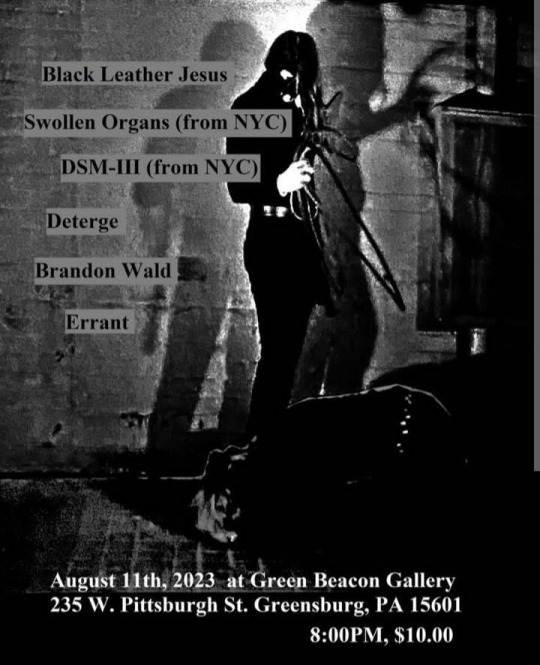
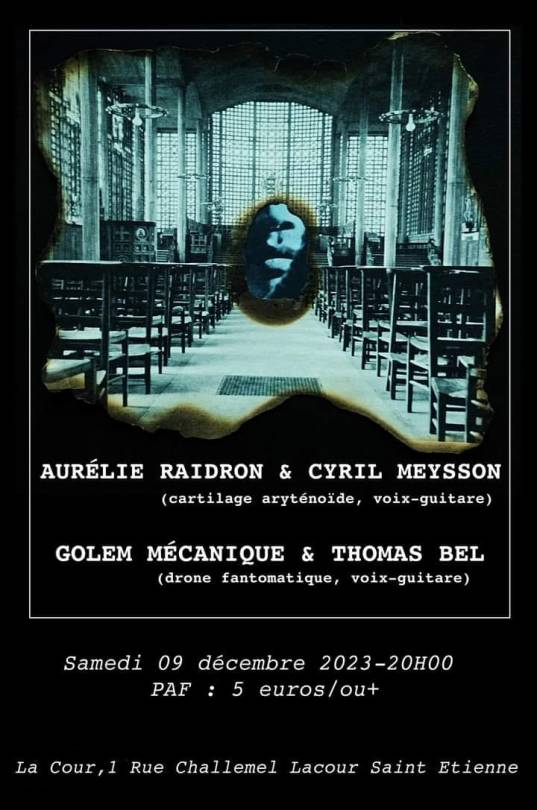


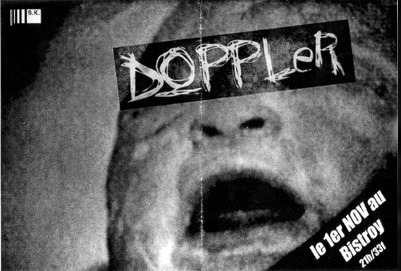
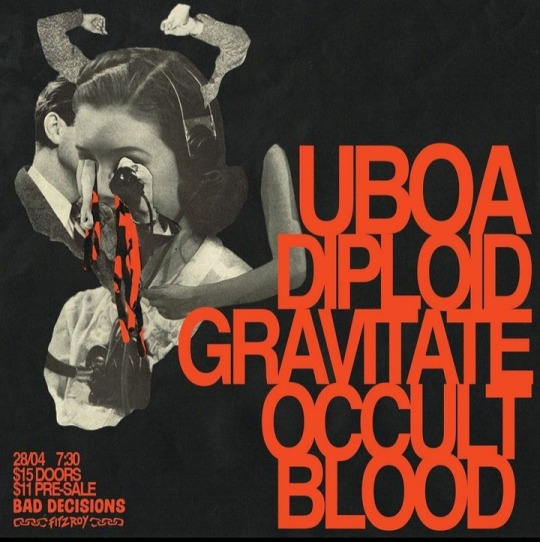

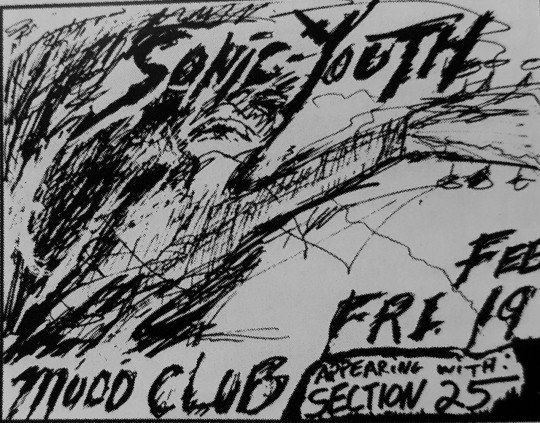
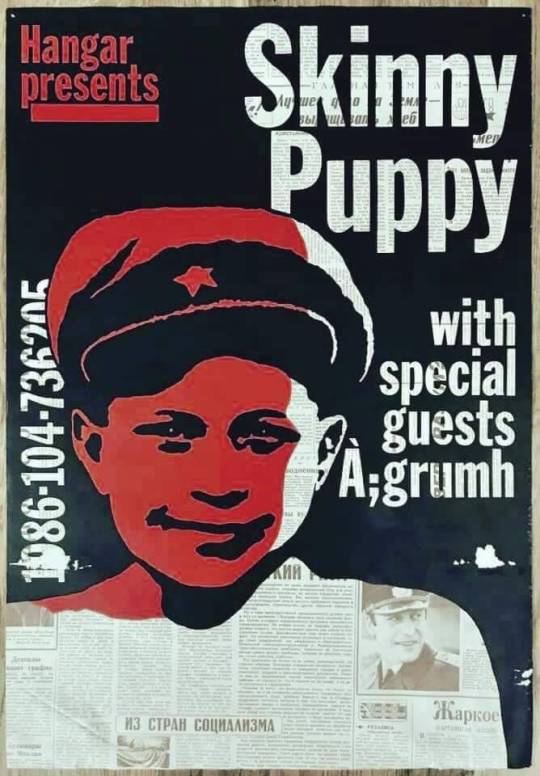




Flyers can be so great!
#flyers#throbbing gristle#spk#the young gods#test dept#cabaret voltaire#flyer#she spread sorrow#doppler#skinny puppy#sonic youth#factrix#uboa#current 93#delphine dora#crass
94 notes
·
View notes
Text
Gevanni ranking 9/10 in emotional strength (according to the HTR) as if he’s not nervously sweating every time we see him and doesn’t practically have an anxiety attack before touching the notebook (honorable mention: being the most upfront and aggressive about questioning the existence of “gods of death”)
Lidner ranking lower than him in emotional strength at 7/10 (also according to the HTR) as if she doesn’t casually walk all the way from her apartment to the SPK headquarters with Mello holding a gvn to her head, doesn’t cooperate alongside a very popular (particularly with men) figure in media (Kiyomi Takada) and stay calm through all the situations she’s thrown into, having been her bodyguard (like the smoke b°mb), and doesn’t approach a MASSIVE F1RE and simply observe with the realization that Mello and Takada are both d£âd (honorable mention: anime only but when she gets out of the shower and Mello points the gvn directly at her forehead and she just says “oh.. you’re alive” I’m sorry that moment kinda made me laugh especially bc Mello just keeps staring her down and takes a bite from his chocolate bar)
so granted I’m not the most knowledgeable in psychology n whatnot, and I realize Lidner may have more experience in dealing with things upfront, having been a former USSS agent, but, needless to say - this makes no sense to me. dare I say … de4th of the author ???
#lalalalala I can’t hear you !!#<- literally me @ ohba rn#thinking about this quite often lately#like seriously how does this HTR measure emotional strength#I need to know (there may be an answer for this but I’ll probably not look for it for the sake of rhetorical questions which I love to ask)#death note#spk#halle lidner#stephen gevanni#lidvanni#halle loud#halle bullook#stephen loud
21 notes
·
View notes
Text
I need them to take a dna test
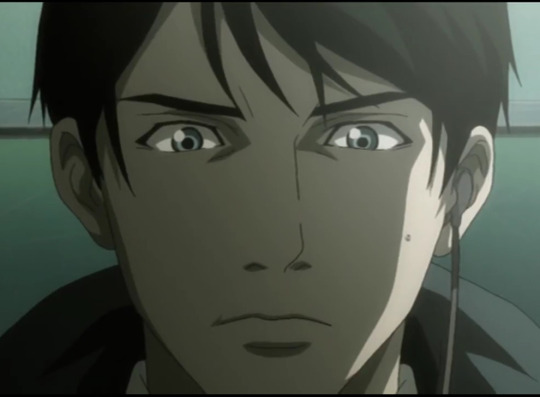

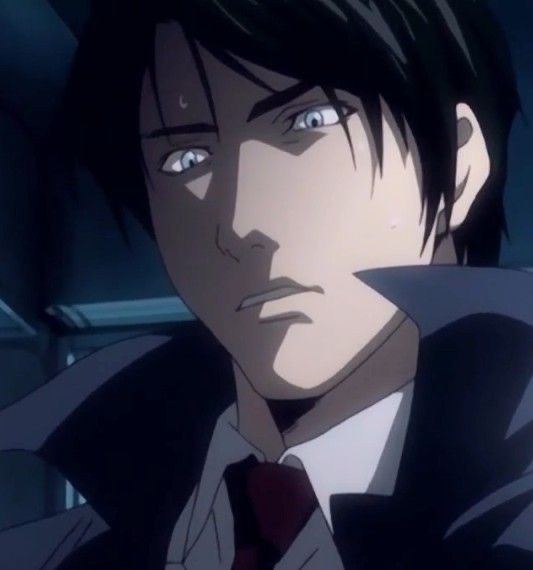

#death note#raye penber#stephen gevanni#someone get them on Maury#spk#ik sometimes characters look similar but they just a little TOO similar yk?#and if I said I hc them as brothers then what#guess we’ll never know bc raye is- nvm#death note manga#death note anime#dn
19 notes
·
View notes
Note
Your quiz truly unruled me and caused quite a stirr and not only for me. I bow down to your way of pinning things down to their place in particularity.
I got king and was surprised. Could maybe you further elaborate what it means to be a king?
Thank you so much for the kind words! I'll say first of all that the Soldier/Poet/King archetypes are just that, and though I believe the quiz can give insight into a person because questions can provoke some thought, I think I consider it more an interactive writing exercise than a personality quiz, so take everything I say with a grain of salt when it comes to relating it to you.
So I've spoken about this before on my blog, but the core of the King archetype is in its relationship to duty: the King is given duty, does not necessarily like it, but accepts it any way and deals with it. This is very vague and I think the reason people overwhelmingly get King is that the feeling of being dissatisfied with one's life but having to live it anyways is fairly common. For the record, the Poet refuses duty, and the Soldier resents duty.
Kings carry with them an inherited responsibility, and they are bound to carry that forward whether they like it or not. They cannot stand the thought of failing that mission, and do not like to admit in any way shape or form that they resent said mission. They'll do it, whatever it takes, because this is what they have to do, at the risk of forgetting to let themselves live for their own sake. They can't bear the idea of carrying the guilt of disappointing people's expectations.
That's really the core of the archetype, based on the song lyrics (which I know are about Jesus, but I chose to completely ignore that and take them at face value when making the quiz): "there will come a ruler whose brow is laid in thorn, smeared with oil like David's boy." The crown is made of thorns and painful to bear. The King exists as a comparison to someone's son, and cannot stand on its own. Thus, painful duty and heavy weight of legacy.
Also, since a lot of people who get King say they hoped to be Poets, here's a fun fact: I've built each archetype so that it wants to be another -- in theory, Poets want to be Soldiers because they think Soldiers can affect the world more effectively, Soldiers want to be Kings because they believe Kings have the stability and peace they crave, and Kings want to be Poets because they see Poets as free.
Hope that gave you some insight into my thought process!
346 notes
·
View notes
